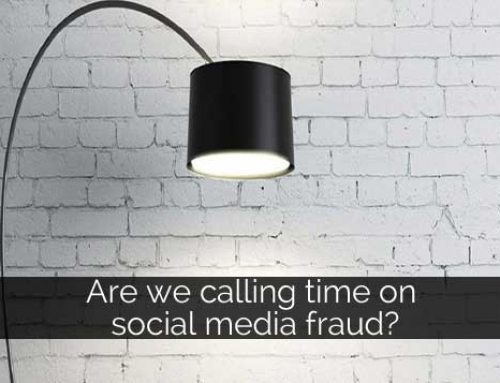One of the reasons we often hear from business owners about why they don’t want to be active on Facebook or Twitter is “but, we won’t be able to control what people say” or “people might say bad things about us” or something similar. Despite being factually true, this is really misguided thinking.
Ignoring social media won’t make it go away
If you refuse to read the local paper, will that stop them printing something negative about you? If you throw away the TV, does that mean all the coverage of your service or industry will be positive? You get the idea. People will talk, whether that be on Facebook or over the garden fence.
Burying your head in the virtual sand only ensures that YOU don’t know what’s going on, not that everyone else doesn’t!
Let’s assume that you genuinely want your customers to be happy, and that your business processes and customer service are, on the whole, up to the job. Things will still, once in a while, go wrong. There’s a mis-communication, systems error, or a full blown visit from the ^%&*-up fairy. It happens. The customer involved is very likely to mention it to others, but guess what? If they choose to voice that complaint on Twitter or your business Facebook page, they’re handing you a fantastic opportunity.
So, how can a tetchy Tweet help my business?
Putting their complaint on a social media website totally shifts the game, and here are three reasons why.
1. The customer is giving you the chance to DO something about the situation. Provided you are managing your social media presence properly, you’ve been gifted an opportunity to make things right with that customer. If they’d just moaned to their mates on the phone, you’d never have known, and they’d have gone on thinking badly of your business and very probably not come to you again in the future. Getting visibility of the problem is GREAT news, because it allows you to save that customer relationship.
2. By putting the dialogue between your business and them on a public platform, your unhappy customer gives you a brilliant chance to show potential customers that you care. If they’d just called you up, and your business had done a great job of fixing the situation, only they and you would necessarily know about it. If they put it on your Facebook page, and you respond with an apology and a great fix, you’re walking the great customer service talk in front of all your existing and potential customers. To put it another way, a savvy customer would pick the hotel with one poor review on Tripadvisor, but which has stepped in publicly to fix the problem, over one which only has glowing reviews. Every business will have an off day eventually, and knowing that if you get unlucky the manager will care, is worth its weight in recommendation gold.
3. Finally, because nobody shouts louder than a surprised customer. A few months ago, Kate had a problem with her Utility Warehouse electricity account. It was clearly a systems glitch, of the “you owe us £0.00, pay immediately or we’ll take you to court” variety, but a couple of calls failed to fix the problem. She complained about it on Twitter, and within hours was involved in a discussion with the company’s Operations Director, who took personal responsibility for sorting things AND looking into the system to ensure it didn’t happen to anyone else. Since then, whenever the company comes up in conversation, Kate will mention how blown away she was by that.
So, if you want to be in control of that opportunity, you need to be ready, organised and listening – and have a presence on the social media sites where your customers hang out, so they know where to come!





Leave A Comment